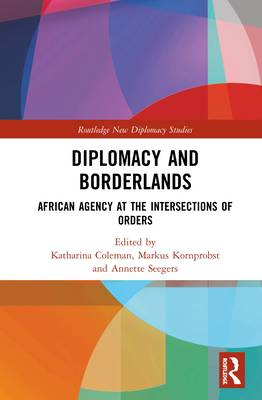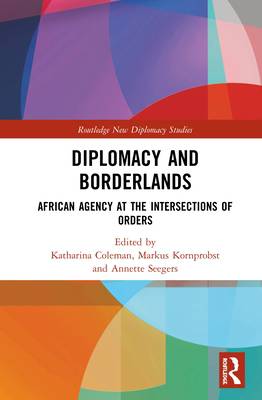
- Retrait gratuit dans votre magasin Club
- 7.000.000 titres dans notre catalogue
- Payer en toute sécurité
- Toujours un magasin près de chez vous
- Retrait gratuit dans votre magasin Club
- 7.000.0000 titres dans notre catalogue
- Payer en toute sécurité
- Toujours un magasin près de chez vous
Diplomacy and Borderlands
African Agency at the Intersections of Orders
Description
This book examines Africa's internal and external relations by focusing on three core concepts: orders, diplomacy and borderlands.
The contributors examine traditional and non-traditional diplomatic actors, and domestic, regional, continental, and global orders. They argue that African diplomats profoundly shape these orders by situating themselves within in-between-spaces of geographical and functional orders. It is in these borderlands that agency, despite all kinds of constraints, flourishes. Chapters in the book compare domestic orders to regional ones, and then continental African orders to global ones. They deal with a range of functional orders, including development, international trade, human rights, migration, nuclear arms control, peacekeeping, public administration, and territorial change. By focusing on these topics, the volume contributes to a better understanding of African international relations, sharpens analyses of ordering processes in world politics, and adds to our comprehension of how diplomacy shapes orders and vice versa. The studies collected here show a much more nuanced picture of African agency in African and international affairs and suggest that African diplomacy is far more extensive than is often assumed.
This book will be of much interest to students of diplomacy studies, African politics and International Relations.
Spécifications
Parties prenantes
- Editeur:
Contenu
- Nombre de pages :
- 274
- Langue:
- Anglais
- Collection :
Caractéristiques
- EAN:
- 9780367273323
- Date de parution :
- 30-10-19
- Format:
- Livre relié
- Format numérique:
- Genaaid
- Dimensions :
- 155 mm x 236 mm
- Poids :
- 521 g

Les avis
Nous publions uniquement les avis qui respectent les conditions requises. Consultez nos conditions pour les avis.





